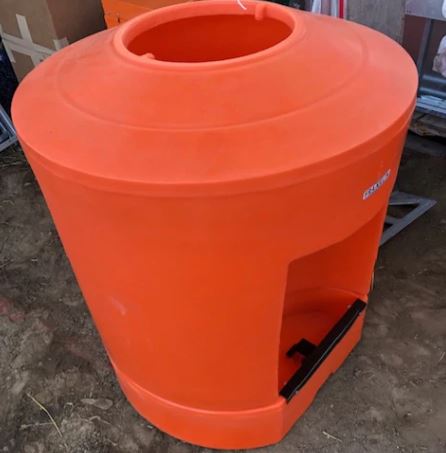Water is one of the most essential needs for any animal, and horses are no exception. Providing them with clean and constant access to water is key to their health and performance. This is why horse waterers have become an indispensable part of modern farms and stables. At the same time, farmers who manage multiple animals often also use cattle waterers, and understanding how both systems work can help you make the best decision for your farm. In this article, we will cover everything you need to know about horse waterers, their benefits, and the features that make them a smart choice.
Why Horse Waterers Are Important for Animal Health
Horses require a significant amount of water daily to maintain proper digestion, hydration, and energy. A horse that doesn’t drink enough can suffer from colic, dehydration, and reduced performance. Traditional buckets might seem like an easy solution, but they come with problems such as contamination, freezing in winter, and frequent refills. Horse waterers solve these challenges by ensuring a continuous supply of fresh water. This not only keeps your horses healthy but also saves you time and effort. Similarly, cattle waterers work on the same principle for larger herds, ensuring every animal stays hydrated.
Different Types of Horse Waterers
There are several types of horse waterers available, and each has its unique benefits. Automatic waterers are among the most popular because they refill whenever water levels drop, ensuring horses never run out. Some models come with insulation, which helps prevent freezing during cold weather. Pasture waterers are ideal for open grazing areas, while stable-mounted waterers are perfect for individual stalls. Farmers who also keep cattle often choose systems compatible with both horses and cattle waterers to reduce installation and maintenance costs. The right choice depends on your climate, barn setup, and the number of animals you care for.
Key Features to Look for in Horse Waterers
When selecting a horse waterer, durability should be a top priority. Horses can be curious and sometimes rough on equipment, so the material should withstand constant use. Look for easy-clean designs because stagnant water can attract algae and bacteria. If you live in a region with cold winters, insulation or heated options are important to prevent water from freezing. Energy-efficient systems are becoming popular as they lower operational costs while ensuring optimal water temperature. Some horse waterers even include filters for extra clean water, which can improve your horse’s overall health.
How Horse Waterers Improve Farm Efficiency
Time management is critical for anyone running a farm or stable. Buckets need to be checked, cleaned, and refilled multiple times a day, which adds hours of labor each week. Horse waterers eliminate this repetitive work by maintaining a constant supply of water. Automatic refill systems save time, reduce water waste, and ensure that even when you are busy with other tasks, your horses stay hydrated. For farmers who also manage cattle, investing in cattle waterers provides the same benefit, making water management easy across different animal groups.
Challenges of Manual Watering and Why Upgrading Matters
Manual watering might seem economical at first, but it has hidden costs. Buckets can spill, freeze, or become contaminated quickly. Horses may even knock them over, leaving them without water until someone notices. This can cause stress and health problems. Automatic horse waterers solve these issues by ensuring there is always fresh, clean water available. For those raising cattle, upgrading to cattle waterers offers the same reliability and reduces the risk of dehydration during hot weather or when you are away from the farm.
Installation Tips for Horse Waterers
Proper installation ensures your horse waterers work effectively. Place them where horses can access them easily without crowding. If the waterers are installed in a barn, make sure they are mounted at a comfortable height for the horse. For pasture setups, position the waterers in areas that stay dry and have good drainage to prevent mud and contamination. If you also use cattle waterers, choose a location that serves multiple groups of animals without causing congestion. For heated or energy-efficient models, ensure safe and reliable access to power.
Maintenance for Long-Lasting Performance
Even the best horse waterers need maintenance to stay clean and functional. Regular cleaning is essential to prevent algae buildup, which can make the water unappealing or even harmful to horses. Check for leaks, damaged valves, and proper water flow during inspections. In winter, confirm that heating systems or insulation are working to prevent freezing. Cattle waterers also require similar care, so setting a maintenance schedule for all water systems on your farm will keep your animals healthy and your equipment in good shape.
Choosing the Right Size and Capacity
Horses vary in size and water intake, so choose a waterer that matches your horse’s needs. A small horse will not need as much water as a large draft horse, so consider the capacity before purchasing. If you have multiple horses, larger waterers or multiple units may be necessary to avoid competition and ensure constant access. For mixed-animal farms, cattle waterers often come in larger capacities to handle the needs of a big herd. Balancing size, capacity, and placement is key to efficient water management.
Future Trends in Horse and Cattle Watering Systems
Technology is making horse care easier and smarter. Modern horse waterers now include sensors that monitor water levels, detect leaks, and even alert you if something goes wrong. Some models connect to mobile apps, allowing you to manage water systems remotely. Energy-efficient designs with better insulation and low power consumption are becoming the norm. Cattle waterers are also evolving with similar features, offering farmers the ability to manage water more sustainably while saving on costs.
Conclusion
Investing in the right horse waterers is one of the best ways to ensure your horses remain healthy, hydrated, and happy. These systems save time, reduce labor, and provide a reliable water supply regardless of the weather. For farms that also care for cattle, using cattle waterers alongside horse waterers ensures all animals have access to fresh water every day. From choosing the right type to proper installation and maintenance, every step matters. By making the right investment now, you can improve animal welfare and simplify your daily farm routine for years to come.









+ There are no comments
Add yours